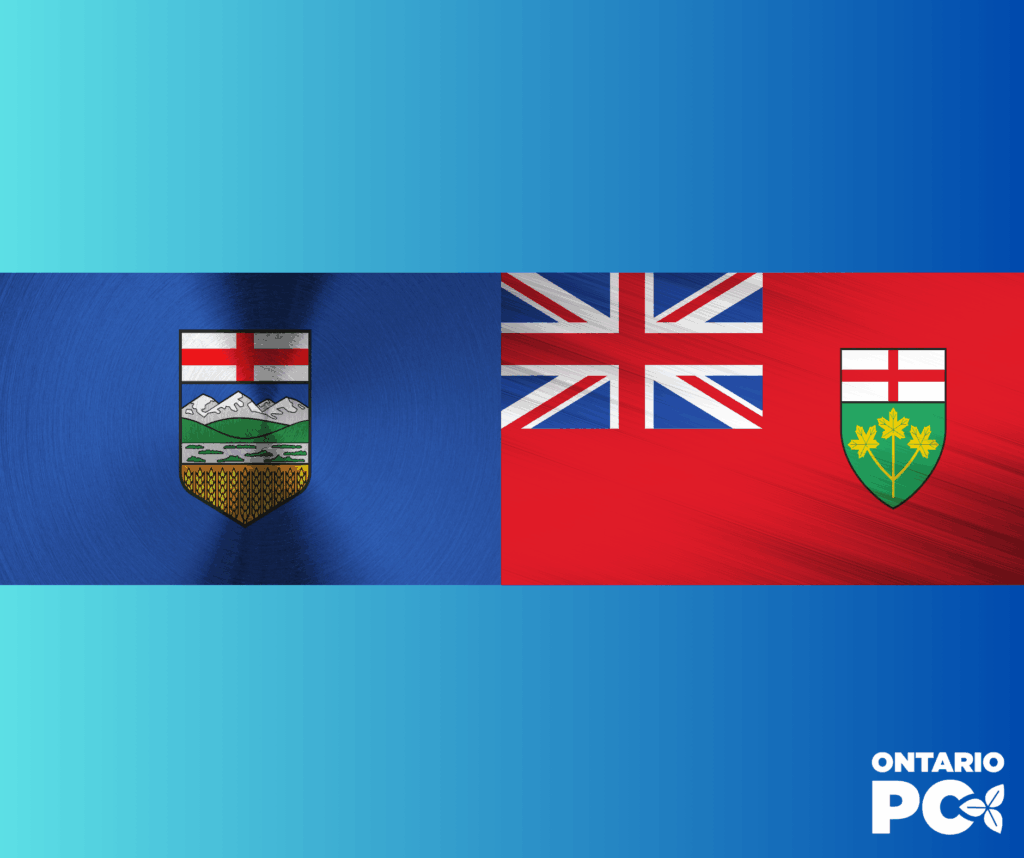
Premier Doug Ford and Alberta Premier Danielle Smith have signed two new Memorandums of Understanding (MOUs) to build the infrastructure Canada needs to grow—a move that will unlock new markets, strengthen domestic supply chains, and get Canadian resources to the world.
These agreements will help:
- Build New Pipelines and Rail Lines
New pipelines—constructed with Ontario steel—will connect Western Canadian oil and gas to new and existing refineries in Southern Ontario, as well as to new export opportunities via a planned deep-sea port in James Bay.
New rail lines—also built using Ontario steel—will link Ontario’s Ring of Fire region, critical mineral mining operations, and processing facilities to Western Canadian ports, helping establish a made-in-Ontario, end-to-end critical minerals supply chain. - Support a Joint Feasibility Study
Ontario and Alberta will launch a joint study to identify optimal routes, endpoints, and financing models for these projects. The provinces are committed to ensuring this infrastructure is efficient, commercially sound, and built with home-grown supply chains. - Diversify Our Trading Partners
In an era of growing global instability and uncertainty, these projects will help reduce Canada’s overdependence on the U.S. market by opening up new trade pathways and export opportunities. - Expand Nuclear Energy Cooperation
The MOUs also support greater collaboration on nuclear innovation, including shared expertise on small modular reactors and large-scale nuclear facilities to meet the growing energy needs of both provinces. - Reduce Red Tape and Trade Barriers
These new MOUs build on a growing wave of cooperation between provinces. Since April 2025, Ontario has signed trade agreements with six provinces and passed the Protect Ontario Through Free Trade Within Canada Act, making Ontario the first jurisdiction in Canada to eliminate all of its party-specific exceptions under the Canadian Free Trade Agreement. - Increase Access to Canadian-Made Products
The agreements also commit to more made-in-Canada vehicles for Alberta’s fleet and a stronger presence of Alberta beer, wine, and liquor on Ontario store shelves—supporting Canadian producers and consumer choice.
With $326.6 billion in interprovincial trade in 2023—and Ontario now leading the nation in tearing down trade barriers—the Ontario PC government is taking bold steps to grow the economy, protect Canadian jobs, and build the infrastructure our future depends on.